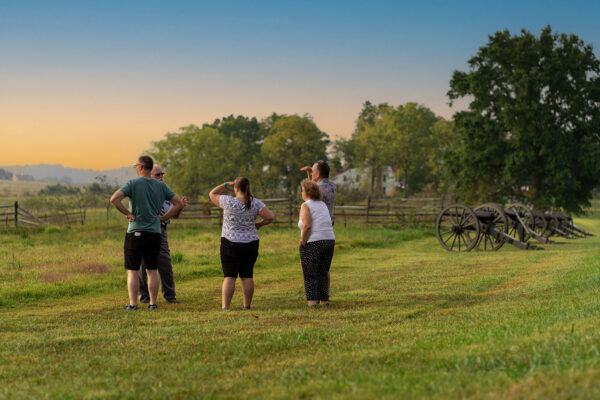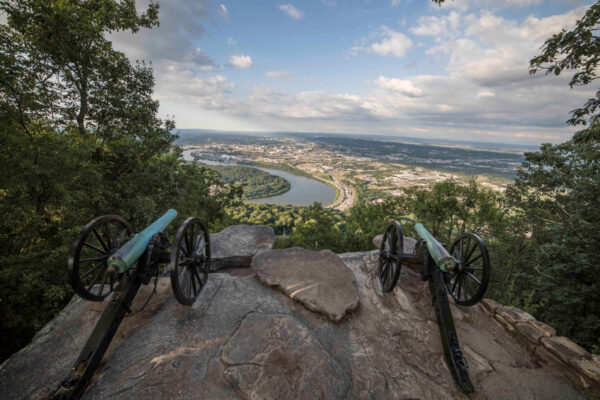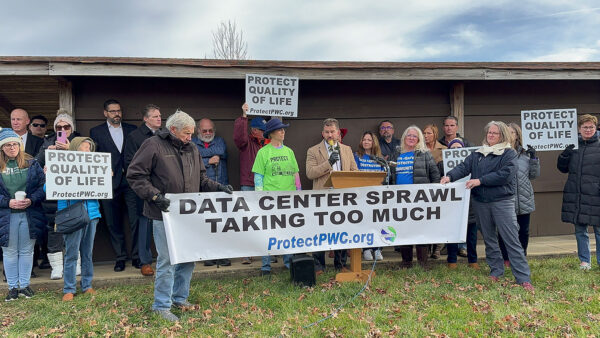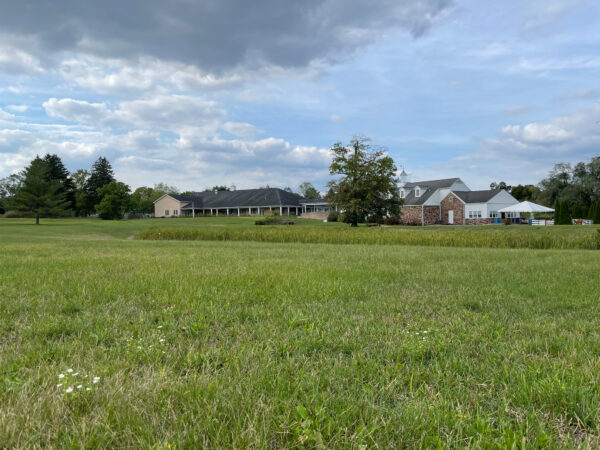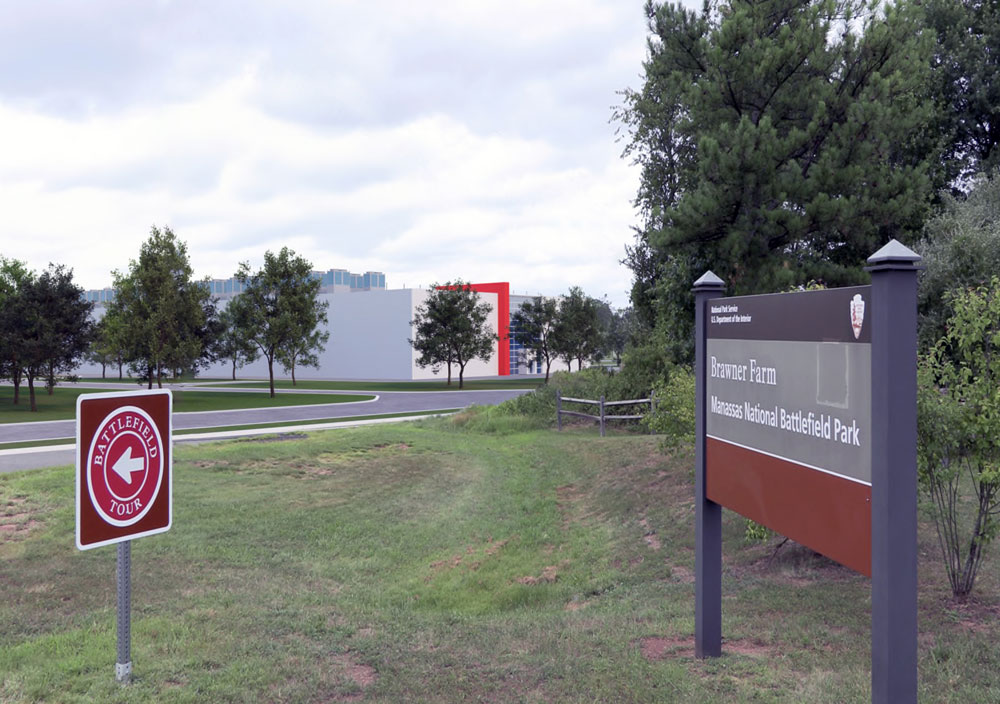 American Battlefield Trust
American Battlefield TrustThis photo of the perimeter of the Second Manassas Battlefield includes a digital rendition of the size and location of a proposed data center complex, which preservationists believe “would inevitably lead to the irreversible and irreparable desecration of hallowed ground.”
The Board of Supervisors of Prince William County, Virginia, following a flawed process that violated state statutes, voted last December to approve a project that, if it were built, would be the largest data center complex on earth. Vast swaths of the Second Manassas Battlefield would be catastrophically affected, with historic landscapes destroyed. The American Battlefield Trust had opposed the proposal at every stage, participating in each marathon hearing—the last one for 27 hours straight—and in consultation with the Board of Trustees, I made the decision to keep fighting, taking the county to court over its improper handling of the rezoning.
Six months earlier we had taken a similar step in Orange County, where the Wilderness Battlefield faces a proposed massive multiuse development that includes data center components. I would rather put available funds toward purchasing battlefield land than to pay court and lawyer fees. But we had to do it.
An important consideration in legal cases is the matter of “standing”: In order to file suit, you must be directly and uniquely impacted by the matter. Owning nearby land on these battlefields, we stand to suffer significant repercussions from the proposed developments. At Manassas, our land is immediately adjacent to what was rezoned and the renderings show data center buildings coming almost to the property line. There was even a suggestion floated that the data center companies might want our cooperation to build walking trails onto our battlefield land.
Plenty of other conservation and preservation groups also opposed these development proposals on principle, but the Trust is the only one in the unique position to be a plaintiff in both cases. (We are grateful to the Central Virginia Battlefield Trust and Friends of Wilderness Battlefield for joining us on the Orange County suit.) And this fall, reinforcements arrived at Manassas, when six organizations filed a joint amicus curiae brief in the case. This allowed those entities with an interest in the case but without full standing to present their perspectives.
In the filing, the Coalition to Protect Prince William County, Piedmont Environmental Council, National Parks Conservation Association, Association for the Preservation of Virginia Antiquities, National Trust for Historic Preservation, and The Coalition to Protect America’s National Parks detailed how the project “would inevitably lead to the irreversible and irreparable desecration of hallowed ground and the despoiling of the natural and cultural resources in Prince William County and across the Commonwealth.”
Now we prepare for a hearing that will determine whether the case will proceed to trial (Prince William County filed a motion to dismiss). Meanwhile, the case in Orange County has been delayed by turnover in the county attorney’s office, but still is expected to move forward. Find updates on both cases and information on ways to assist our suit at battlefields.org/speak-out.
David Duncan is president of the nonprofit, nonpartisan American Battlefield Trust, an organization dedicated to preserving America’s hallowed battlegrounds—Revolutionary War, War of 1812, and Civil War—and educating the public about their significance.

